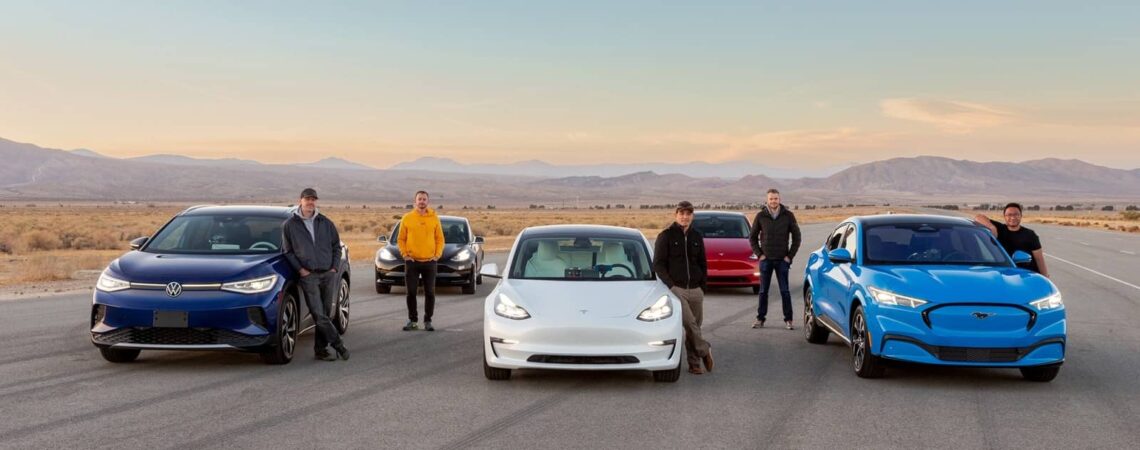
When considering the purchase of an EV, the first thing to do is assess your driving habits. Consider the distance you typically cover daily, the access you will have to charging infrastructure, and whether you often go on long trips.
Some EVs offer extended ranges, but a hybrid or range-extender may be a more practical choice for frequent road trips.
To help you make an informed decision, here’s a look into the essential aspects of buying an electric vehicle.
Budget Wisely
Setting a budget is an essential part of any major purchase. While EVs save money in the long run, they can have a higher upfront purchase price. It can be a good idea to explore available incentives, rebates, or tax credits that can help offset the initial cost.
Additionally, determine if you’ll buy new or used, as used EVs often offer cost-effective alternatives.
Battery Longevity and Warranty
When buying an EV, battery longevity and warranty are important considerations. You need to ensure your vehicle is compatible with commercial EV charging stations.
Be sure to check out the manufacturer’s warranty on the battery, which typically covers several years and a specified number of miles. A good warranty can provide peace of mind and assurance that you won’t face substantial replacement costs if battery health deteriorates.
Home Charging Infrastructure
The charger you choose for at-home charging will depend on your car and the amperage in your garage. If you have a 240 outlet, installing a level 2 home charging station is recommended.
Level 2 chargers allow faster and more efficient charging than a level 1 charger, which uses a standard household outlet.
Performance and Driving Experience
EVs can be exciting to drive because they have instant acceleration and run quietly, making the ride smooth and peaceful without engine noise.
Look at different car models to find one that matches your driving preferences, whether you want a sporty experience or a more relaxed one.
When exploring your options, test drive different models to find the one that meets your performance expectations.
Safety Features
Your EV will come equipped with advanced safety technology. This may include adaptive cruise control, lane-keeping assist, and automatic emergency braking.
EVs often have a lower center of gravity due to the heavy battery placement, enhancing stability and reducing the risk of rollovers.
EV manufacturers also typically have a robust frame and overall structural design to protect the battery, further enhancing safety in the event of an accident.
Mobile Apps and Connectivity
Many EVs have dedicated mobile apps that allow you to remotely check the battery status, start or stop charging, and precondition the cabin. These apps make it convenient to check your EV’s status, locate charging stations, and plan routes that optimize charging stops.
Connectivity enables over-the-air software updates, ensuring your EV remains up-to-date with all the latest features.
Leasing vs. Buying
Consider whether leasing or purchasing an EV makes more financial sense for your situation. Leasing often has lower monthly payments, allowing you to upgrade to a new model more frequently. It’s an excellent option for those who want to experience EVs without a long-term commitment.
Buying, on the other hand, allows you to build equity and enjoy long-term cost savings. You’ll own the vehicle outright once the loan is paid off and can benefit from tax incentives.
Consider your financial situation, driving habits, and desire for ownership or flexibility when deciding between leasing and buying an EV.
Service and Maintenance Centers
Identify service centers or technicians in your area who are experienced with EVs. Prompt and knowledgeable service is essential to keeping your EV running smoothly.
EVs typically have fewer moving parts, which means reduced maintenance needs. There are no oil changes, and brake wear is often minimized due to regenerative braking systems.
However, be aware that specialized EV components like batteries may need eventual replacement, and these costs can be significant.
Environmental Benefits
Purchasing an EV brings significant environmental benefits. EVs produce zero tailpipe emissions, reducing air pollution and decreasing greenhouse gas emissions.
By transitioning to cleaner energy sources, the overall carbon footprint of EVs can be even smaller. Lower reliance on fossil fuels also decreases oil consumption, reducing the environmental impact of drilling and transportation.
Choosing an EV helps combat air pollution and climate change and promotes a more sustainable and eco-friendly future.
Choosing the right electric vehicle can be exciting! By following this comprehensive buying guide, you’ll be better equipped to make an informed decision that suits your lifestyle, budget, and sustainability goals.
An electric future is within reach, and with the right EV, you’ll be on the road to a cleaner and more efficient way of driving.


